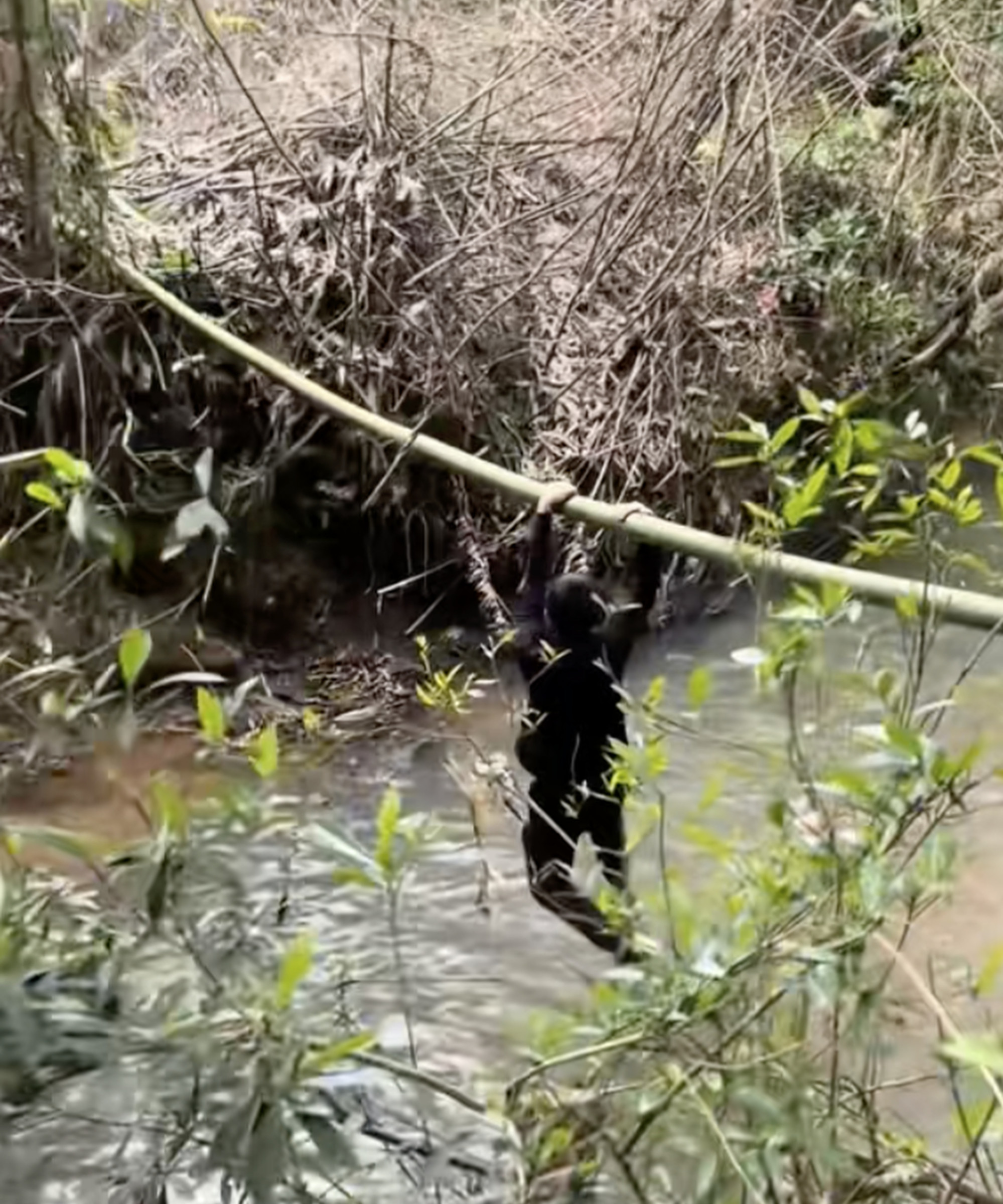
Dive, abseil, hike: China ancestor worshippers go extra mile to pay respect during tomb-sweeping festival
- Annual visit to ancestors’ graves takes on new, challenging dimensions
- Difficult to reach tombs in remote areas are chosen for feng shui reasons
You might think a visit to a dead relative’s grave would be a solemn occasion, but that is not the case for residents in some parts of rural China.
Ancestor worshipping rituals in some of the country’s southern provinces during the Ching Ming Festival, have been dubbed “survival training in the wild” due to the difficulty of reaching the gravesites.
The purpose of the annual event, which is also known as the Tomb Sweeping Festival, is to visit and clean ancestors’ graves to show respect and pray for blessings.
Residents in Guangdong, Guangxi and Hainan, in rural southern China, are determined to overcome obstacles on the challenging terrain, such as rugged mountains, riverbeds, and caves, the Guangxi Daily reported.

Many tombs are in remote areas and are difficult to access, but the locations were carefully chosen based on feng shui. These includes hillsides, beside streams and sunny spots. It is widely believed that a tomb with good feng shui will bring fortune to the family.
Since the beginning of March, internet users from the three provinces have been sharing their gravesite experiences, describing them as physically challenging, the report said.
Some even bring scythes to cut down trees or grass and often they will need to use both hands and legs to scramble up mountains. They might also wade, swim, or place a stick on the banks to get across a river.
In extreme cases, people will crawl into caves where their ancestors were buried to worship them because they think doing it outside is not demonstrating enough devotion.
A Guangxi-based Douyin blogger identified as Huang Ci Wei, released a video clip showing how he and his relatives spent three hours on craggy mountain roads before reaching its peak to sweep the tomb of the “great-grandfather of my great-grandfather”.
Huang and his family brought roast chicken, liquor, firecrackers, and paper hell money for the ceremony.

“Perhaps blazing a way through all manner of obstacles to visit the ancestors’ tombs will ensure we never forget them, and they will live in our hearts forever,” he said in the video.
These exhausting expeditions have created a buzz on mainland social media.
“It’s a normal traditional practice in my hometown. I always thought it was the same in other provinces. Kids as young as three will climb mountains with their parents to worship ancestors,” one internet user from Guangdong province said.
“Every year, after I visit my ancestors’ tombs, I will need to rest for a whole week,” said another.

